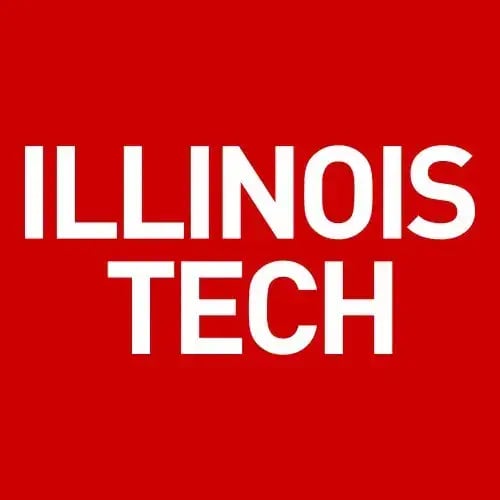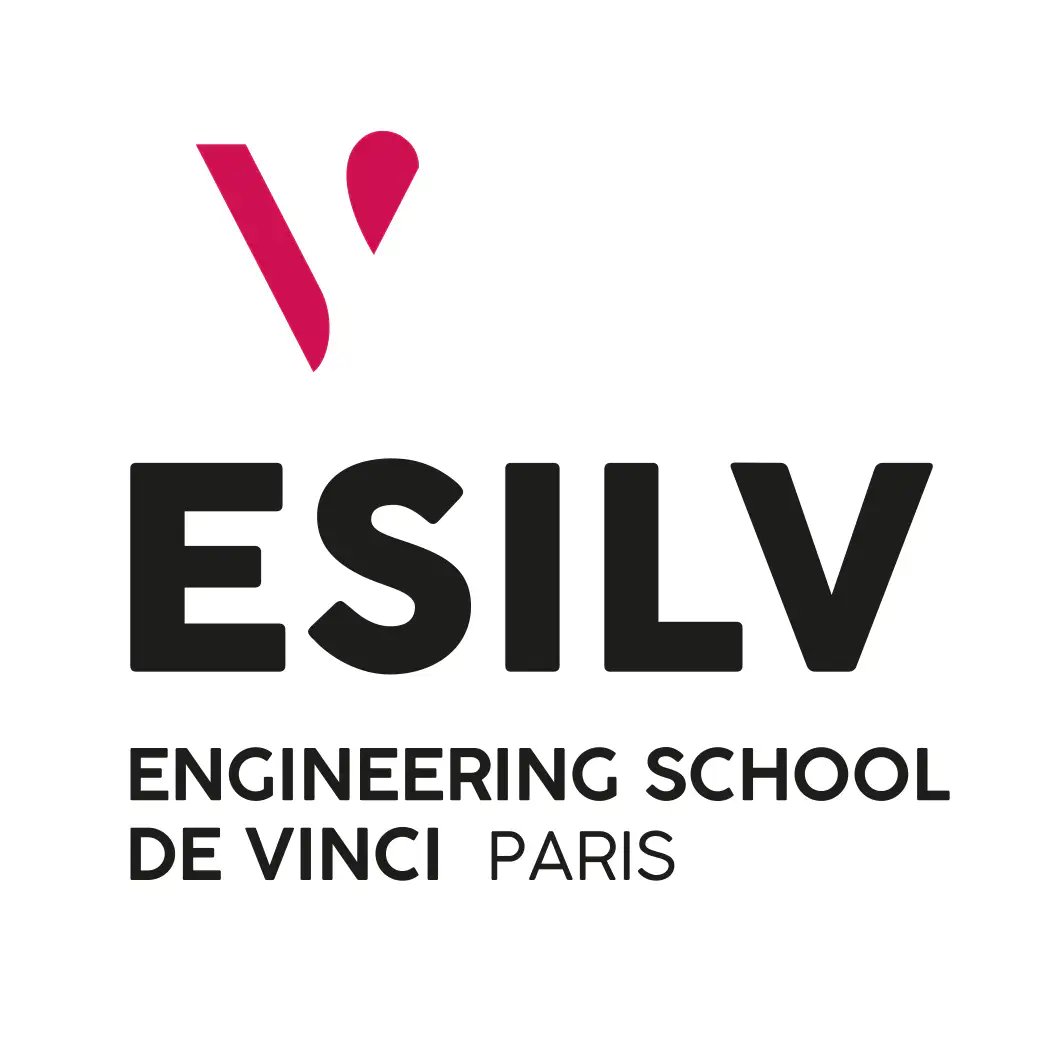Python
Typing
Resulty
An implementation of the `Result` type from Rust 🦀 in Python 🐍

1 yr, 1 mo
—
Full-Time
LLMs
Typescript
React
Reatime

2 yrs, 4 wks
—
Part-time
Rust
Kubernetes
WebRTC
Scalability

2 yrs, 4 wks
—
Full-Time
ML
AI
Cloud
AWS

1 wk, 6 days
—
Internship
JavaScript
CSS

6 days
—
Internship
PHP
MySQL
Support

8 mos
—
Neuroimaging
Explores the use of imaging modalities to study brain function and connectivity. The course begins with an introduction to MRI, covering MR signal detection, pulse sequences, imaging methods, image quality, and artifacts. It then addresses brain function, including energy metabolism, cerebral blood flow, brain activation, perfusion-based functional MRI (fMRI), blood oxygen level-dependent (BOLD) imaging, and statistical analysis of fMRI data. Additional topics include positron emission tomography (PET), magnetoencephalography (MEG), and the spatial and temporal properties of fMRI. The latter part of the course focuses on brain connectivity, discussing diffusion tensor MRI, the relationship between diffusion properties of tissue and its structural characteristics, and white matter fiber tractography. Topics include human brain anatomy and physiology, experimental design, and mapping white matter fiber tracts using MRI.
Online Social Network Analysis
Focuses on analyzing online social networks using data mining and graph theory techniques. Covers the basics of social media mining, including challenges and methodologies. Topics include graph essentials, such as nodes, edges, degree distribution, and various types of graphs (trees, forests, bipartite graphs). Explores network algorithms, including graph traversal, shortest path algorithms, minimum spanning trees, and network flow algorithms.
Discusses network measures such as centrality (degree, eigenvector, Katz, PageRank, betweenness, closeness, group), transitivity, reciprocity, balance, and similarity. Examines network models, including properties of real-world networks, random graphs, small-world models, and preferential attachment models.
Covers data mining essentials, including data quality, preprocessing, supervised learning (decision trees, Naive Bayes, nearest neighbor, regression), and unsupervised learning (clustering algorithms). Focuses on community analysis, including community detection algorithms, community evolution, and evaluation with and without ground truth.
Explores information diffusion in social media, including herd behavior, information cascades, diffusion of innovations, and epidemic models (SI, SIR, SIS, SIRS). Discusses Bayesian modeling of herd behavior, intervention strategies, and maximizing the spread of cascades. Analyzes the diffusion of innovations, modeling techniques, and intervention methods for controlling epidemics in social networks.
Advanced Artificial Intelligence
Covers advanced topics in artificial intelligence, focusing on both theoretical and practical aspects. Topics include search and optimization techniques such as hill climbing, gradient ascent/descent, constrained optimization, genetic algorithms, and simulated annealing. Explores probabilistic reasoning with Bayesian networks, hidden Markov models, and Kalman filters. Discusses decision-making under uncertainty, including influence diagrams, Markov decision processes, and bandit problems. Delves into machine learning topics such as supervised learning (Naive Bayes, logistic regression, deep learning, convolutional neural networks, recurrent neural networks), reinforcement learning (temporal-difference learning, policy search), and introduces generative AI and natural language processing with large language models. Covers knowledge representation, propositional and first-order logic, and ontological engineering. Emphasizes AI ethics, safety, privacy, bias and fairness in machine learning, and explainable AI. Develops skills in implementing and evaluating algorithms, carrying out probabilistic inference, computing value of information, and designing learning agents.
Big Data Technologies
Explores advanced concepts and practical skills in big data technologies. Topics include the characteristics, processing pipeline, trends, and risks of big data. Covers distributed systems concepts, focusing on fault tolerance. Delves into Hadoop basics, including its ecosystem architecture, data management (HDFS, YARN), data processing (MapReduce, Spark), data access (Pig, Hive, HBase, Storm, Solr), and data governance and integration (Falcon, Flume, Sqoop, Kafka, Atlas). Discusses security aspects with Kerberos and Knox, and operational tools like Ambari, Zookeeper, and Oozie.
Examines the Hadoop Distributed File System (HDFS), YARN, and MapReduce, including developing Hadoop applications, the MapReduce model, job execution framework, and performance optimization. Covers Hive basics, focusing on its architecture, query language, and use cases, including creating and loading data into databases and tables, and understanding Hive’s storage formats. Explores Spark basics, advanced features, SQL context, DataFrames, and structured streaming.
Discusses Kafka basics, its architecture, fault tolerance, and use cases. Covers NoSQL databases, including motivations, ACID and BASE principles, and types (key-value, document, column family, and graph databases). Examines the CAP theorem and its critique. Details key-value databases, including features, architecture terms, design patterns, and limitations. Introduces wide column databases, focusing on terminology, design, usage patterns, and MapReduce integration. Covers document databases, particularly MongoDB, including JSON, document management, operations, aggregation framework, and modeling relations and hierarchies.
Brain Function
MRI
fMRI
PET
MEG
Brain Connectivity
Diffusion Tensor Imaging
Social Media Mining
Graph Theory
Network Measures
Community Detection
Information Diffusion
Search and Optimization
Probabilistic Reasoning
Decision-Making
Machine Learning
AI Ethics
Big Data
Hadoop
Spark
Distributed Systems
NoSQL
Data Processing
Data Integration, Warehousing, and Provenance
Focuses on data integration, data warehousing, and data provenance. Covers schema matching, mapping, data integration techniques, and translating data between databases with different representations. Discusses the ETL process, data cube models, and efficient processing of analytical queries. Explores Big Data analytics and contrasts it with traditional warehousing approaches. Emphasizes tracking the origin and creation process of data through provenance techniques.
Deep Learning
Covers the mathematical concepts, numerical algorithms, and principles of deep learning, with a focus on GPU frameworks. Topics include deep feedforward networks, convolutional networks, regularization, optimization, sequence models, transformers, generative models, and deep reinforcement learning. Provides an understanding of theoretical foundations, techniques, common architectures, and algorithms used in deep learning, as well as computational methods for design and implementation.
Machine Learning
Delves into the mathematical and theoretical foundations of machine learning. Covers supervised learning (linear regression, logistic regression, support vector machines), unsupervised learning (k-means clustering, principal component analysis), and semi-supervised learning. Emphasizes understanding and evaluating algorithm performance, exploring tasks such as generative vs. discriminative classification, clustering, and dimensionality reduction. Advanced topics include sparse/low-rank representation, graph neural networks, trustworthy learning, causal inference, machine learning for security, and federated learning. Highlights the complexity and depth of the subject through rigorous mathematical concepts and advanced algorithmic techniques.
Natural Language Processing
Focuses on core concepts and tasks in statistical natural language processing, preparing for advanced study in machine learning, data science, and deep learning. Covers entropy, ambiguity, cross entropy, and perplexity. Topics include word embeddings, word sense disambiguation, text categorization with Naïve Bayes, generalized linear models, and feed-forward neural networks. Explores sentiment analysis, k-means clustering, language models, part-of-speech and sequence tagging, hidden Markov models (HMMs), the Viterbi algorithm, unsupervised sequence labeling (Expectation-Maximization), conditional random fields (CRFs), and structured prediction. Discusses neural models for sequence labeling, context-free grammars and syntax, context-free parsing, CKY and probabilistic CFGs, dependency parsing, semantic role labeling, machine translation, transformers, self-attention, pretrained language models (PLMs), and large language models (LLMs). Develops skills in processing, analyzing, and building applications with human language text data.
Data Integration
Data Warehousing
ETL
Data Provenance
Schema Matching
Big Data Analytics
Neural Networks
Deep Learning
GPU Frameworks
Convolutional Networks
Sequence Modeling
Supervised Learning
Unsupervised Learning
Semi-Supervised Learning
Mathematical Concepts
Algorithm Evaluation
Statistical NLP
Text Analysis
Language Models

3 yrs, 9 mos, 4 wks
—
Neural Networks and Deep Learning
Introduces the concepts and techniques of neural networks and deep learning using TensorFlow. Topics include the basics of neural network architecture, activation functions, loss functions, and backpropagation. Covers various neural network architectures such as convolutional neural networks (CNNs), recurrent neural networks (RNNs), and deep neural networks (DNNs). Emphasizes model training, optimization techniques, and practical experience in designing, implementing, and evaluating deep learning models with TensorFlow for various applications.
Web Datamining and Semantics
Focuses on understanding the importance and challenges of data and their interconnections to make them machine-exploitable. Covers techniques for retrieving relevant data from the web, cleaning, and enriching them. Explores the use of Web of Data standards for manipulating web data. Topics include Web Content Mining (analyzing web page content) and Web Structure Mining (analyzing links between web pages), and the Web of Data’s role in automating knowledge processing using languages like RDF, RDFS, and OWL. Highlights the use of Linked Data as a semantic web database applicable in both web contexts and enterprise information systems.
Advanced Topics in NoSQL Databases
Covers advanced concepts in NoSQL databases, focusing on modeling collections of NoSQL objects and using various NoSQL database types. Topics include document-oriented databases (Cassandra, MongoDB), column-oriented databases (Elasticsearch), and graph-oriented databases (Neo4j). Emphasizes designing and using NoSQL database architectures, querying search engines with Elasticsearch, visualizing data with Kibana, and querying NoSQL databases with Cassandra, MongoDB, and Neo4j.
Neural Networks
Deep Learning
Model Training
TensorFlow
Web Mining
Data Enrichment
Linked Data
Semantic Web
SPARQL
NoSQL
Document-Oriented Databases
Column-Oriented Databases
Graph Databases
Data Visualization
Introduction to Machine Learning
Provides an introduction to machine learning, classification, and statistical pattern recognition, with a focus on practical applications. Covers supervised learning techniques such as regression (simple and multiple linear regression), classification (logistic regression, linear and quadratic discriminant analysis, Naive Bayes, Support Vector Machines), and unsupervised learning techniques including dimensionality reduction (Principal Component Analysis) and clustering (K-means, Gaussian models, Expectation-Maximization). Emphasizes the ability to describe and select appropriate models for given situations, formulate models, and implement them in enterprise solutions. Prerequisites include statistics, linear algebra, and programming. Develops skills in model selection, formulation, and practical implementation.
Operating Systems
Focuses on practical usage and understanding of operating systems with an emphasis on Linux. Covers topics such as Linux system architecture, process management (creating and managing processes in C, scheduling, synchronization, inter-process communication), and file systems (structure, access methods). Emphasizes hands-on experience with Linux commands, scripting, and system programming to develop a deep understanding of operating system functionalities and management.
Python for Data Analysis
Aims to provide hands-on experience with Python and current libraries for processing and visualizing large datasets. The course covers the use of specific libraries for data handling, implementation of machine learning algorithms, and data visualization techniques. Emphasizes the ability to implement functional Python solutions for data fields and propose relevant approaches for exploiting large datasets. Utilizes flipped classroom pedagogy to enhance learning. Develops skills in Python-based data analysis and visualization, as well as machine learning implementation.
Software Engineering
Covers the principles and practices of software engineering, emphasizing the software development life cycle (SDLC). Topics include requirements analysis, system design, coding, testing, and maintenance. Explores design patterns, project management techniques, version control systems, and quality assurance practices. Aims to provide a comprehensive understanding of developing reliable, maintainable, and scalable software systems, focusing on best practices and methodologies in the software industry.
Supervised Learning
Unsupervised Learning
Model Implementation
Data Classification
Linux
Process Management
C Programming
Inter-Process Communication
File Systems
Data Processing
Data Visualization
Machine Learning
Python Libraries
Software Development Life Cycle
Design Patterns
Project Management
Quality Assurance
Introduction to Financial Markets
Provides an introduction to financial markets, using concrete examples to familiarize with the vocabulary, concepts, and issues in finance. Topics include the role and functions of finance, key market players, market operations, and various financial products. Covers debt instruments, interest rates, credit risk, equity valuation, and a brief introduction to derivatives. Includes case studies of recent financial crises, such as the subprime mortgage crisis and the European sovereign debt crisis. Develops an understanding of risk transfer, capital allocation, interest rates, and debt, enhancing the ability to analyze and comprehend recent economic and financial developments, and offering insights into various finance careers.
Foundations of Artificial Intelligence
Introduces foundational concepts of Artificial Intelligence (AI) and explores its impact across various engineering fields. Topics include the history of AI, key challenges, and the reasons behind its successes and limitations. Covers methods such as game algorithms (MiniMax, AlphaBeta), learning algorithms (k-Nearest Neighbors, DB-SCAN, linear regression, gradient descent), evolutionary algorithms, constraint programming, shortest path search (A*), and data mining (APriori). Emphasizes understanding AI’s implications, formulating AI problems, and selecting appropriate methods to solve them.
Database Systems and Interoperability with C#
Focuses on modeling problems in databases, manipulating data with SQL, and ensuring interoperability between databases and programming languages. Topics include database design, Entity-Relationship (ER) modeling, relational model, SQL (DML, DDL, DCL), XML technologies, JSON format, and interoperability with C#. Develops skills in designing ER models, converting ER models to relational schemas, querying and updating relational databases with SQL, implementing data serialization and exchange mechanisms, and accessing relational databases from C#.
Introduction to Python for Data Science and AI
Teaches the basics of Python and delves into specific features of the language, exploring the diverse aspects of the Python ecosystem. Designed to complement the Data Science and AI module, the course covers Python fundamentals, using Integrated Development Environments (IDEs) like Anaconda, Spyder, Jupyter, and Colab. It deepens knowledge of advanced structures, classes, and comprehensions, and introduces vectorization, numpy, matplotlib, and pandas. Thematic learning includes AI concepts such as genetic algorithms, k-NN, pruning, and MiniMax, as well as scientific computing, GUI development, and data visualization with tools like plotly and folium. The course also covers Python frameworks like Django and Flask, providing a broad understanding of the Python ecosystem and mastery of its fundamentals.
Signal Processing and Digital Communication Systems
Covers the main mathematical tools for processing physical signals with theoretical aspects and numerical simulation applications. Relevant to various fields including industry, finance, IoT, data science, robotics, transportation, medicine, and telecommunications. Topics include signal classification, energy, power, correlation, time-invariant linear systems (LTI), convolution, frequency analysis with Fourier Series and Transforms, signal digitization (sampling, quantization, coding, A/D and D/A converters), discrete Fourier Transforms and FFT, digital filter analysis (difference equations, Z-transform, FIR and IIR filters), and modulation/demodulation techniques. Practical work involves using Matlab for Fourier analysis, signal digitization, filtering, and modulation/demodulation. Develops skills in defining and representing physical signals, analyzing signal processing systems, manipulating signals in time and frequency domains, mastering mathematical signal processing tools, studying analog/digital signal conversion, and using Matlab for simulations and implementations.
Statistical Data Analysis with R: From PCA to Regression Models
Trains in multidimensional data analysis, emphasizing the mathematical understanding of tools like regression and Principal Component Analysis (PCA) and practical implementation using the statistical software R. The course covers methodology for analyzing datasets and critically evaluating results. Topics include PCA and simple and multiple linear regression models. Prerequisites include matrix calculus and diagonalization, descriptive statistics (means, variances, correlation coefficients), inferential statistics (hypothesis testing), and basic knowledge of R. Develops skills in modeling and structuring information, analyzing and organizing real data, mastering statistical software, and presenting analysis results.
Numerical Simulation with MATLAB and Simulink
Introduces the world of numerical simulations, focusing on using MATLAB to solve common mathematical and physical equations and employing auxiliary engineering tools like Simulink and Simscape. Begins with mastering MATLAB, progresses to MATLAB Simulink, and explores the Simscape environment, enabling the creation of simple numerical simulation applications. Prerequisites include general physics knowledge, understanding of total and partial derivatives and integrations, and numerical schemes. Develops skills in using computational and simulation tools, numerically solving common equations, discretizing equations, and representing, simulating, analyzing, and interpreting calculation results.
Linear and Non-Linear Optimization Methods in Operations Research
Focuses on optimization methods and linear programming (LP) or operations research. Optimization involves maximizing or minimizing a function under constraints. Operations research, at the interface of applied mathematics, computer science, and engineering, aims to rationalize, simulate, optimize, model, and plan complex systems. The course covers non-linear optimization (Lagrange and Kuhn-Tucker multipliers, algorithms), practical problems modeled as LPs, standard LP forms, geometric interpretation and resolution, simplex method (standard form, slack variables, feasible solutions, artificial variables), duality (primal and dual problems, economic interpretation, optimality conditions, solving the dual via the primal, big-M method), and post-optimal analysis (sensitivity analysis). Prerequisites include linear algebra, matrix analysis, basic numerical analysis, and differential calculus. Develops skills in addressing specific LP problems, solving optimization or LP problems, and implementing algorithms.
Financial Markets
Financial Instruments
Risk Management
Economic Analysis
AI Foundations
Machine Learning
Data Mining
Algorithms
Database Modeling
SQL
Data Interchange
C# Integration
Python Basics
Data Science
AI
Python Ecosystem
Signal Classification
Fourier Analysis
Signal Digitization
Digital Filters
Modulation
Multidimensional Data Analysis
Regression Models
Principal Component Analysis
R
MATLAB
Simulink
Simscape
Numerical Methods
Linear Programming
Nonlinear Programming
Simplex Method
Duality
Advanced Mathematics I: Matrix Reduction, Euclidean Spaces, and Fourier Series
Finalizes the acquisition of fundamental mathematical tools for modeling across scientific disciplines. Topics include the reduction of endomorphisms (eigenvalues, characteristic polynomials, diagonalization), Euclidean spaces (dot products, norms, distances, Cauchy-Schwartz inequality, orthogonality, symmetric matrices), Fourier series, and functions of several variables (partial derivatives, partial differential equations, extrema of functions with two variables). Emphasizes rigorous calculations and reasoning, building on previous mathematics courses.
Computer Science IV: Advanced OOP, Recursion, and WPF
Revisits fundamental aspects of Object-Oriented Programming (OOP) and emphasizes teamwork in software development projects. Introduces recursion and basic concepts of Windows Presentation Foundation (WPF) for creating graphical user interfaces in C#. Focuses on developing skills to complete OOP-based projects, converting iterative algorithms to recursive ones, and designing simple graphical interfaces using WPF.
Mechanics of Materials
Essential for structural modeling, this course focuses on calculating stresses and deformations in materials under various loads. Topics include theoretical study of mechanical response to external forces such as tension, compression, shear, torsion, and bending. Covers evaluation of internal forces, normal and shear stresses, and displacement of structures. Provides tools to analyze deformations and stresses in beams, understand different loading conditions, and design structures to ensure mechanical integrity.
Fluid mechanics and thermodynamics
Covers fundamental laws and concepts for fluid media, illustrated with simple examples and exercises. The first part focuses on fluid mechanics, including physical characteristics of fluids, fluid statics (pressure, hydrostatic relations, buoyant forces), and dynamics of incompressible fluids (steady flow, continuity equation, mass and volume flow rates, Bernoulli’s theorem), as well as viscosity and flow regimes (Reynolds number). The second part applies fundamental thermodynamic concepts, covering general thermodynamics, thermodynamic systems, the first and second laws of thermodynamics, thermodynamic potentials, phase changes, and heat engines.
Electromagnetic Fields and Waves
Provides theoretical and technical knowledge of electric and magnetic fields and their applications. Topics include fundamental electromagnetic phenomena and tools for determining related quantities. Covers mathematical prerequisites, Maxwell’s equations, electromagnetic waves, magnetic fields and forces, electric fields and potentials, and the electrostatic dipole. Emphasizes mathematical tools related to electromagnetism, methods for determining magnetic and electric fields, electric potential, and the study of electromagnetic waves.
Matrix Algebra
Euclidean Spaces
Fourier Series
Partial Differential Equations
Object-Oriented Programming
Recursion
WPF
Structural Analysis
Stress and Strain
Load Bearing
Fluid Mechanics
Thermodynamics
Fluid Dynamics
Electromagnetic Fields
Waves
Maxwell's Equations
Applied Mathematical Analysis
Focuses on essential mathematical tools for modeling in physics, statistics, and finance. Topics include generalized and multiple integrals, continuous random variables, introduction to the R programming language, determinants and diagonalization, Euclidean spaces, extrema of functions of several variables, and vector analysis. Builds on previous mathematics courses to enhance modeling capabilities and computational precision.
Computer Science III: Advanced Object-Oriented Programming with C#
Consolidates foundational software development skills with a focus on mastering C# Object-Oriented Programming (OOP) in a collaborative Integrated Development Environment (IDE) using Microsoft Visual Studio. Topics include class and encapsulation concepts, problem analysis and program structuring, collection manipulation, and file handling in C#. Emphasizes the development of applications in various fields, including management, finance, multimedia, and graphical computing.
Electronics III: Digital Circuits and VHDL
Focuses on understanding and utilizing elementary combinatorial and sequential functions in digital circuits and modeling these functions using VHDL. Topics include sequential logic elements such as flip-flops, counters, registers, multiplexers/demultiplexers, an introduction to VHDL, and the use of Xilinx FPGA boards. Builds on foundational courses in electronics to develop proficiency in digital circuit design and FPGA programming.
Fundamentals of Heat Transfer: Conduction
Provides foundational knowledge in heat transfer, focusing exclusively on heat conduction. Topics include Fourier’s law, thermal resistance, and the general heat equation. Emphasizes understanding and applying energy balance techniques, equivalent electrical circuits for thermal systems, and quantifying heat transfer phenomena in various situations.
Multivariable Calculus
Probability
Linear Algebra
Vector Analysis
C# Programming
Object-Oriented Development
Digital Electronics
Sequential Logic
VHDL
FPGA Programming
Heat Conduction, Fourier's Law
Thermal Resistance
Heat Equation
Oscillations and Waves
Covers the principles of oscillatory motion and wave phenomena. Topics include simple harmonic motion, damped and driven oscillations, wave propagation, sound waves, and electromagnetic waves. Emphasizes the mathematical modeling and physical understanding of oscillations and waves in various media.
Calculus II: Multivariable Calculus, Linear Algebra, and Probability
Focuses on advanced topics in calculus, linear algebra, probability, and statistics. Topics include multivariable calculus, eigenvalues and eigenvectors, probability distributions, hypothesis testing, and regression analysis. Builds on foundational mathematics to prepare for complex problem-solving and analytical tasks.
Computer Science II: Data Structures and Algorithms
Builds on introductory computer science concepts with a focus on data structures and algorithms. Topics include arrays, linked lists, stacks, queues, trees, and graphs, as well as sorting and searching algorithms. Introduces object-oriented programming principles and software development practices.
Electronics II: Analog and Digital Circuits, Signal Processing, and Microcontrollers
Advances knowledge of electronics with a focus on analog and digital circuits. Topics include operational amplifiers, filters, signal processing, digital logic design, microcontrollers, and interfacing techniques. Emphasizes practical applications and hands-on circuit design and testing.
Harmonic Motion
Wave Propagation
Acoustics
Electromagnetic Waves
Linear Algebra
Probability
Statistics
Data Structures
Algorithms
Object-Oriented Programming
Analog Circuits
Digital Circuits
Signal Processing
Microcontrollers
Calculus I: Functions, Limits, and Introduction to Complex Numbers
Enhances computational skills and rigor. Topics include matrix calculus (sum, product, inverse), solving linear systems, elementary logic and reasoning, numeric sequences (convergence, divergence, comparison), real variable functions (continuity, differentiability, limits, L’Hôpital’s rule, inverse trigonometric functions), first and second-order linear differential equations, and complex numbers (algebraic and exponential forms, equation solving). Emphasizes proof techniques, recurrence relations, limit calculations, understanding of common functions, and solving differential and polynomial equations.
Introduction to Computer Programming and Algorithms
Covers basic algorithms using simple tools like Scratch and LARP, progressing to C# programming. Topics include algorithmic principles, pseudo-code, flowcharts, computer operation, data encoding, and C# basics (I/O, indentation, comments, variables, types, conditional and repetitive structures, functions, and procedures).
Engineering Mechanics: Statics and Dynamics
Focuses on the study of statics, kinematics, and dynamics of rigid bodies. Topics include fundamental concepts such as velocity, acceleration, forces, isolated systems, equilibrium, friction, and power. Covers static principles like torsors and mechanical actions, kinematic representation of motion, kinematic and dynamic torsors, kinetic energy, and dynamic principles including the fundamental principle of dynamics and the kinetic energy theorem. Introduces Coulomb’s law of friction and basics of vibrational phenomena including single-degree-of-freedom and forced vibrations.
Introduction to Electrical Engineering and Digital Logic
Introduces the fundamentals of direct current (DC) and transient electrical circuits, along with basic computer science concepts through combinational logic. Covers essential electronic components and principles, enabling the design and test simple electronic systems.
Matrix
Sequences
Real Functions
Differential Equations
Complex Numbers
Programming
Algorithms
Statics
Dynamics
Kinematics
Vibrations
Electronics
Digital Logic

7 mos
—
Network Servers and Services
Covers the architecture, implementation, and management of network servers and services. Topics include server setup and configuration, network protocols (HTTP, FTP, DNS, etc.), network security, load balancing, and server virtualization. Emphasizes practical skills in managing and securing network servers, as well as providing reliable network services.
Data Structures and Algorithms
Focuses on the design and analysis of data structures and algorithms, emphasizing computational efficiency and problem-solving techniques. Topics include arrays, linked lists, stacks, queues, trees, graphs, sorting and searching algorithms, and algorithmic complexity. Develops skills in implementing and analyzing efficient data structures and algorithms to solve complex computational problems.
Digital Enterprise and Innovation
Introduces the concepts of digital enterprise and innovation, focusing on how businesses can leverage technology to drive growth and transformation. Topics include digital transformation strategies, innovative business models, technology integration, and the impact of digital tools on business processes. Explores case studies and practical examples of successful digital enterprises and innovation practices.
Network Architecture
Server Management
Network Protocols
Security
Data Structures
Algorithms
Computational Efficiency
Digital Transformation
Innovation Strategies
Business Models
Technology Integration